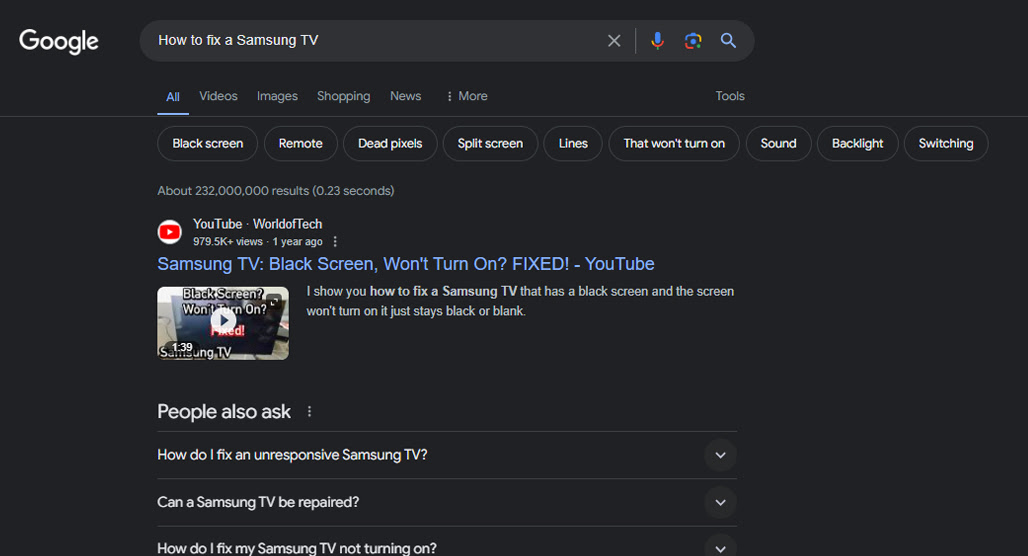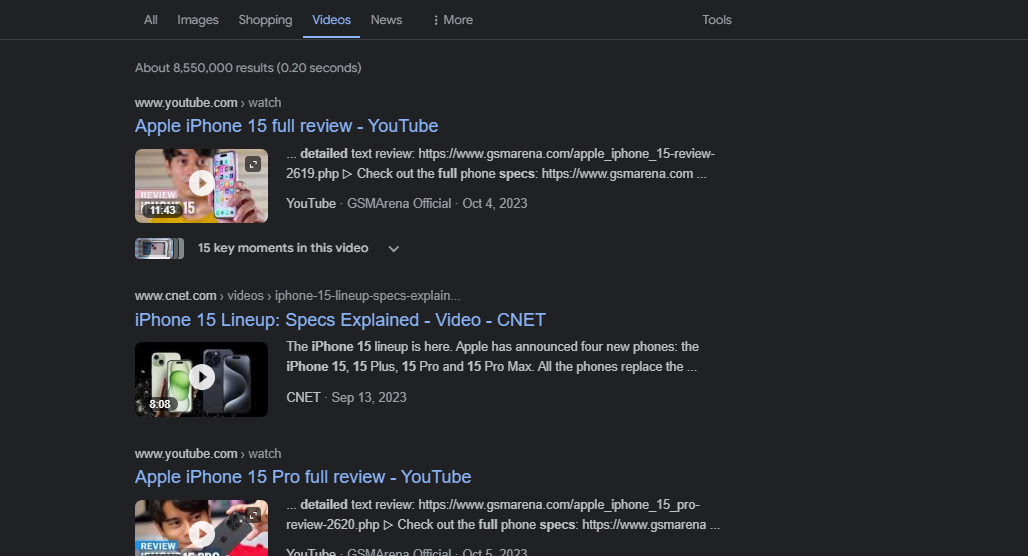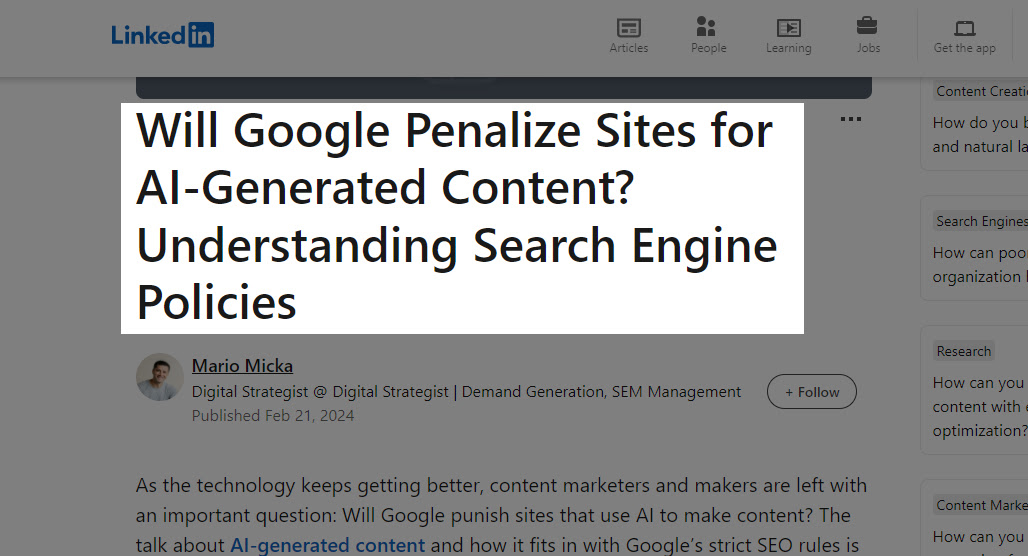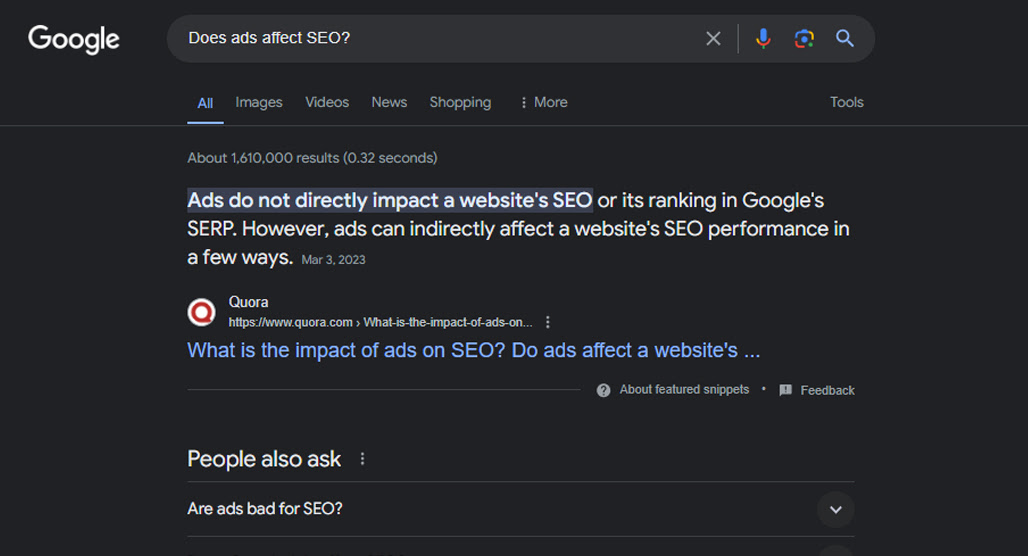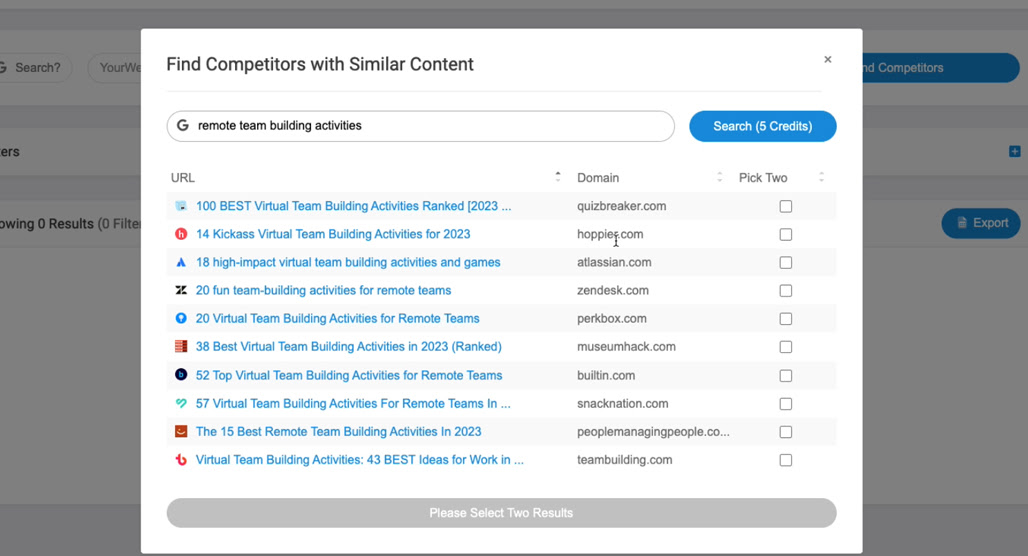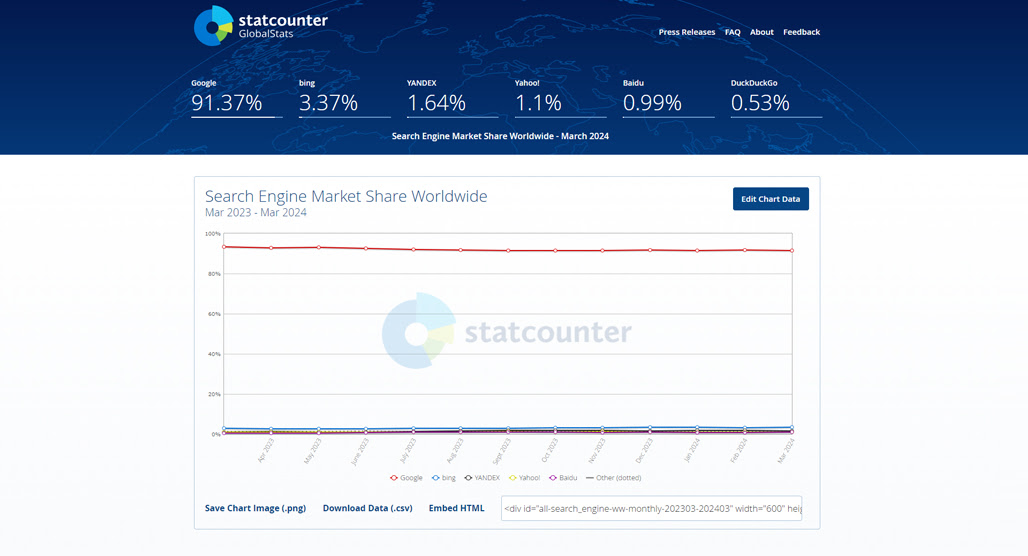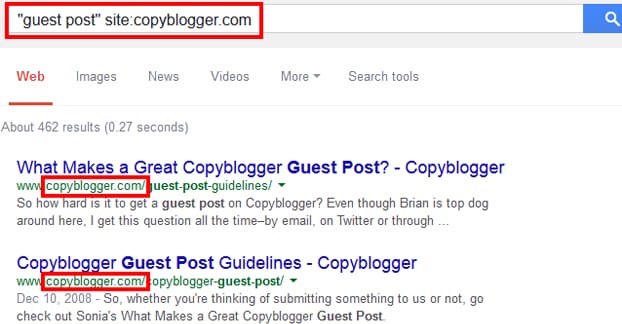Which Types of Blog Posts Aren’t Ranking After the Google HCU?

Recently, in an effort to push back against spam, low-quality pages, AI-generated thin content, affiliate sites, and the general reputation as a worse and worse search engine, Google pushed out a new core algorithm update. This update, called the Helpful Content Update, is actually one in a long series of updates by the same name. These HCUs are designed to adjust standards, add new algorithmic filtering, and recognize new patterns of abuse in search results.
You may have noticed last month – and a few times over the last six months – that the sites ranking well in Google searches have changed, sometimes drastically. Sometimes, it shows as weird newcomer sites ranking oddly well; sometimes, it’s sites that are clearly AI spam suddenly disappearing. These are the impact of the Helpful Content Updates.
The latest wave of Helpful Content Updates launched in September of 2023, and has seen iterative adjustments every couple of months since. The most recent was actually part of their March 2024 Core Update, and reportedly reduces unhelpful content in search results by 40%.
The question is, what kind of content can still rank well, and what kind of content is now deemed to be unhelpful? What should you focus on writing, and what should you avoid? Let’s go through the worst kinds of content hit by the update and what you might consider writing instead.
Table of Contents
Brand-Related Searches are Almost Gone
First on the chopping block are blog posts related to branded searches when you aren’t the brand in question.
A common way that spam sites would saturate search results is with branded search keywords that often might not be robustly covered by the brand itself. For example, if you have a TV that broke and you want to know if you could fix it yourself, you might type a query like “How to fix a Samsung TV,” maybe with some additional information for the specific problem.
In the past, this would be a good query for a blog to cover. For one thing, Samsung doesn’t provide you with DIY instructions on how to fix their electronics; only ways you can send it back for repairs. You might be able to capture instructional/tutorial search intent, whereas Samsung only wants to capture transactional intent. You might also be able to leverage it to sell kits or tools for DIY repairs or pitch your own TV repair service, if applicable.
Unfortunately, this was often absolutely saturated with low-quality results. Often, sites would write 50x or more articles, all of which were basically the same, with a find->replace for the TV model number. Even if different TVs have wildly different ways to repair them, genericized advice could still work to capture search traffic, even if it’s ultimately worthless.
After the latest HCU, pretty much all of these are gone. DIY and tutorial instructions for fixing TVs exist, but when you search for them, you find YouTube videos, Reddit and Quora posts (because Reddit and Quora posts are going to be up there for literally every search possible), the official repair and returns pages for Samsung, and a few service providers like Best Buy’s TV repair services or iFixIt.
What can you do instead? You have a couple of options. The most likely to be successful is producing YouTube videos on the subject. You may also be able to get away with deep, robust guides. Mostly, though, these aren’t the types of content that work very well right now.
Simple Answer Queries are Thin Content
Another kind of content that was hit very hard by the most recent HCU is the simple question answer. For example, if you want to know the specs of the most recent iPhone or whether or not a given new TV show is getting a season 2, you can ask Google that question.
It used to be that the top 500 search results, other than the occasional Reddit, Quora, Forbes, or other major sites covering the topic, would be essentially all the same. I can’t even tell you how many times I’ve asked a simple question and gotten dozens of websites, all of which basically say “we don’t know” in 1,500 words with ads.
Even questions where there’s an answer, like the iPhone specs example, would be littered with search results from blogs that didn’t have much unique to them. They’d answer the question, sure, but they’d layer the page in ads and affiliate links to buy phones or phone accessories or whatever, and sometimes it was even hard to find the actual relevant information.
Today, you can still use these queries to get the information you’re looking for, but it’s more likely to be there if any information exists.
For example, right now, if you want to search for the specs of the iPhone 15, you get Apple’s official pages, a couple of database pages like GSMArena, and some more editorialized content like the Wired analysis of what the specs mean for phones and the CNET comparison of different iPhone model specs. Most of the really thin, more-ads-than-content pages are gone.
For something that doesn’t have an answer, a query like “Will there be a Fallout season 2?” is a little trickier. This also used to be the kind of query absolutely packed with thin pages and pop culture “blogs” that would spin up 100 different pages for every new media property to “answer” all of these questions, despite them not having answers.
Right now, as of the time of this writing, Fallout is popular but has only just been released, so there’s not much information or even room for the decision to have been made yet. All you know are rumors from the producers. So, the search results show pages like Forbes, Polygon, Esquire, and ComicBook.com, all producing aggregate pages with rumors, interviews, quotes, and a solid “we don’t know yet” conclusion.
It’s honestly not that much different than before, except it’s at least more trusted names in the industry covering it instead of random blogs you’ve never heard of.
What can you do instead? For these kinds of queries, unless you have a hookup or insider information, I’d honestly say just avoid them. You aren’t going to out-compete Apple for a page on iPhone specs. If you have some insider information that you’re allowed to share, you may be able to write about it. Alternatively, if you have some deep and insightful way to cover the topic, go wild. For simple informational queries, though, don’t bother.
These are two of the biggest categories of content hit by the HCUs, but the changes are reflected throughout blogging in general. So, what can you do?
How To Succeed in a Helpful Content Era
Navigating blogging and producing content in this era of AI-generated slop, mass-produced spam, and Google’s omnipresent pressure is more difficult than ever. You can still do it, but some of the strategies that used to work are no longer quite so easy or might not work at all. This actually isn’t necessarily a bad thing, but it might mean shifting the way you think about blogging. Here are my tips for coming out ahead when these updates land.
Consider Producing Video Content
Many different queries – even queries I wouldn’t personally ever watch a video to learn the answer to – have a box full of video results right up near the top. This is because Google’s search has started categorizing different kinds of results in broader ways than they used to. In the past, for example, you would have shopping results and image results in their own boxes, but everything else was in the pile. These days, they’ve even put a dedicated box for “Discussions and Forums” just to lump Reddit, Quora, and niche forums into one box.
Video content gets a box of its own, and it’s actually one of the most graphical boxes in all of Google search results since it shows thumbnails, and you have a lot of control over thumbnails. The top-rated video according to Google also gets a timeline with multiple thumbnails and brief chapter summaries. So, if you use YouTube and make use of the chapter labels function, you can land that result.
Videos hosted on other sites besides YouTube can get an entry in this box as well, but given the challenges of hosting video content, it’s probably a better idea to just use YouTube for the time being, unless you’re really willing to invest in it.
Bring Something Unique and Human to the Table
A huge part of the helpful content update is seeking unique value in the content published and ranked in search. Most of the sites that were nuked in the latest HCU and Core bump were sites that might as well have been automated scrapers throwing a few hundred words around some unchanging information.
This is also a subtle dig at AI. AI generators can’t bring novel information to the table because they aren’t capable of original thought. That’s why so much AI-generated content feels the same and has the same vibe; it’s the underlying math about how words follow other words at play. Hallucinations are technically a way for novel information to be generated, but it’s also easy to validate when something simply isn’t real, and that, combined with other signs that a site is unvetted AI, makes it a clear case of automatically-generated content and thus something Google will penalize.
It doesn’t take much to clear the bar for uniqueness and value. Original thought, original presentation, synthesis of ideas; just think a step or two beyond the bare minimum, and you should be good. Create content that, in some way, is something only a human (and thought leader) could create.
Leverage Reddit and Quora
Have you noticed that every Google search has Reddit and Quora in the top results? Personally, I’ve found that Quora is almost universally absolutely garbage and should probably be nuked, but so far, Google hasn’t pulled that trigger. Reddit, though, is often a good source of decent value and is one of the few places where short-form content can still exist since the average blog post is 1,500-2,000 words now.
Often, you can get some value by creating replies to questions on these sites that are relevant to your topic, and sneak a link in where appropriate. Obviously, you don’t want to go to every topic on a subject, paste in the same result, and rely on the link to do the heavy lifting. That will likely get your posts deleted and maybe even your account banned from certain subs. Be helpful, be resourceful, and be genuine.
Scout Your Topics
Possibly one of the biggest pieces of advice I can give you right now is to scout the topics you plan to cover.
How?
- Identify the search intent behind the keyword you’re considering covering.
- Figure out what a user is likely to type in to get a search result for that keyword.
- Look at the results. Are there any blogs there? If so, go for it. If not, you probably won’t rank either.
Google has always paid some attention to the search intent behind a query, but they’ve cranked that up to 11 recently. It’s just one more filter you need to add to your keyword validation to make sure it’s something that your format can even rank for.
Merge Similar Keywords
This one goes back to, for example, the Samsung TV query. Where a spam site might make nearly identical pages for every model of TV they can come up with, the better option is to create a larger and more robust resource. Of course, that exact query probably won’t rank either way, but in general the concept of lumping things together holds true.
This is actually something I often recommend in content audits and fighting thin content, so it’s been something valuable to do for many years now. It’s just that the HCUs are making it more important than before.
Consider Looking Into Other Search Engines
People have been complaining about the degrading quality of Google search for years now, but the fact is, they’ve been holding steady in the 90% range for years. Or have they? Other sources say they’ve hit as low as 80%. Either way, Bing is seeing growth, DuckDuckGo is scraping away some number of Google users, and a handful of other search engines are trying to spool up as alternatives.
So far, nothing is going to take over, and Google really isn’t at risk of losing it all. But, if they don’t make some serious headway with their HCUs in the next few years, they run the risk of hitting the trust thermocline and suffering catastrophically. They may feel too big to fail, but plenty of other companies have felt that way and still lost.
I don’t think you should cater to another search engine, especially if something that the search engine recommends goes directly counter to what Google recommends. But, if you can do something that helps promote your site on Bing, DuckDuckGo, or another engine without jeopardizing your Google SEO, it’s not a bad idea to start looking in that direction.
Navigating SEO these days is pretty difficult, and it’s only going to get harder as time goes on. Hopefully, we can make the journey together.
Leave a Comment
Fine-tuned for competitive creators
Topicfinder is designed by a content marketing agency that writes hundreds of longform articles every month and competes at the highest level. It’s tailor-built for competitive content teams, marketers, and businesses.
Get Started
